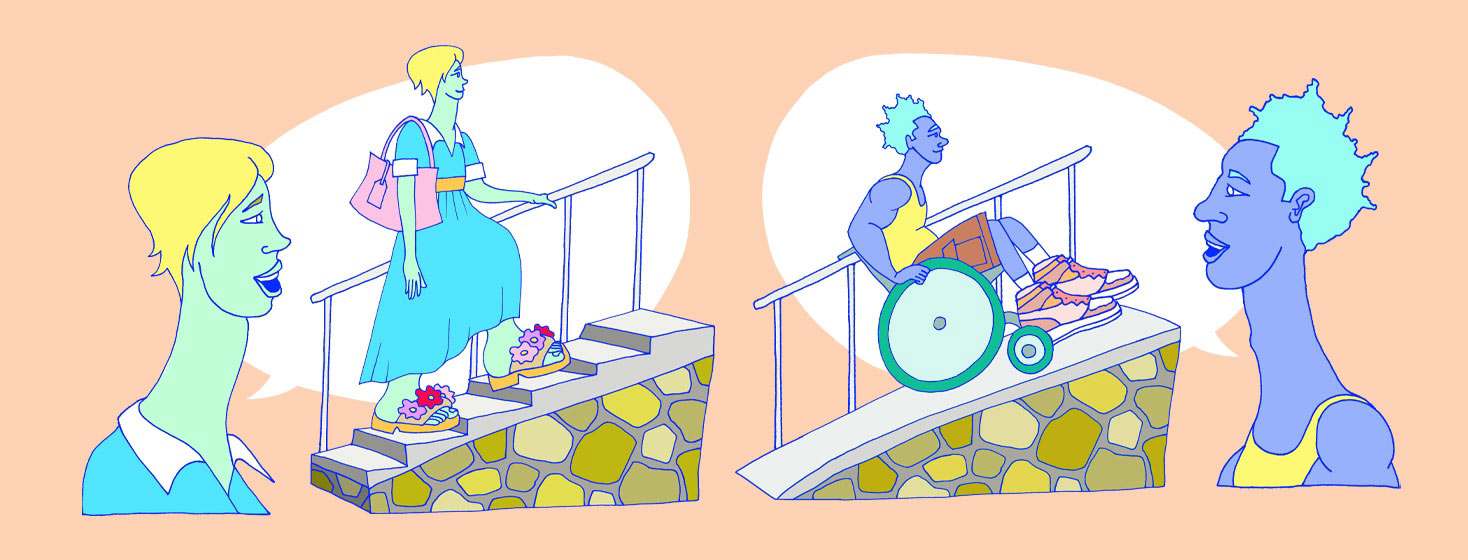Let's Talk Ableism
It's 2022 and somehow we're still having conversations about ableism. With all the technology and resources available today, I can't help but to feel like this conversation should be a thing of the past. No matter how you choose to identify yourself, this is still a very real problem within the disabled, able-bodied, or invisible illness community. Let's get into this.
What is ableism?
Ableism is defined as "the discrimination or prejudice against individuals with disabilities"1. According to a person who is ableist, a disability is a flaw. Taking a look back at my experiences as a person with a disability, I can recall countless situations of ableism. Ableism is a deep-rooted part of our history and has become "normal" behavior for a lot of able-bodied people. Most often, they don't even realize that they are discriminating but then, of course, there are those "ones". In today's society, with social media offering those with disabilities a platform to shine a light on their unique conditions, more people are becoming sensitive and conscientious of the problem.
Types of ableism: physical and mental
With ableism comes a large, broad range of behaviors.
Physical ableism
Physical ableism is a form of ableism "centered around the intentional or unintentional discrimination of people with physical disabilities."2 Some examples include treating a person differently because they are in a wheelchair or assuming one may be less intelligent because they are disabled and treating them as such.
Mental ableism
Mental ableism is "discrimination, whether intentional or not, against people who are mentally ill, neurodivergent, or labeled as having developmental disabilities."3 Examples of this type of discrimination include name calling such as "dumb" or "retarded." This poor treatment of a disabled person can manifest as pay discrimination within the workforce or even the inability to find work.
My personal experience with ableism
I can't speak for anyone else, but I've had my fair share of discriminatory behavior from a lot of people. I've started really getting into the awareness aspect. I've shared my story more times than I count. I am very proud of my work, but I'm always quite surprised by some of the feedback I get from the general population. I've gotten some very rude comments such as "this is fake" or laughing emojis when I share something such as me walking on my walker or having a spasm. The worst is when people make comments to me like, "you're still beautiful" as if somehow I became less than pleasing to the eye because I'm now disabled. This is just one aspect of it. Most often, when I go out in public, there are too many occasions where I can't get somewhere because it's not wheelchair accessible. The list goes on.
From the disabled to the able-bodied
Not being ableist is quite simple. However, as I said, most often, some people are not aware they're being ableist. I can tell you we appreciate the allies and the anti-ableist among us.
Here are some things that I, as a person with a disability, would appreciate!
- Take the stairs if you can so we can easily use the elevator
- Don’t use handicapped restrooms: we truly need them
- Don’t patronize us
- Don’t talk through us or address us through an able-bodied person
- Don’t ask "what happened?"
- Make sure all venues are accessible to all
- Avoid misguided comments
- Stop assuming we want to be able-bodied
- Stop calling us inspirational
- Remember: people with disabilities are people first and foremost4
Combating ableism
We can't expect to change the world, but what we can do is work together to create more awareness of our disease so that more people can understand it. Even further, with increased awareness, we can then vocalize how we should be treated! So join us and become an anti-ableist!
Are you looking to connect with your fellow community members?

Join the conversation